I could never again go home to Florence. Still, out of that dark beginning, God brought great good. What he allowed me to learn on my feet was a simple but life-altering truth: that my primary citizenship is not in Florence, nor in Rome, nor in any other earthly city. My true citizenship is in Heaven.
Author’s Introduction: Imagine if Homer, Virgil, Dante, Chaucer, and the other great poets of ancient Greece, Rome, and the Middle Ages had been given the gift, not only to peer into the twenty-first century, but to correspond with us who live in that most confusing and rudderless of centuries. Had it been in their power to do both of those things, what might they say to us? How would they advise us to live our lives? What wisdom from their experience and from their timeless poems might they choose to pass down to us?
Dante: On Citizenship
I love the city of Florence. But I lost it, and I never will regain it. I have spent the last two decades of my life in exile, and I know now that I will end my life in exile. How bitter it is to eat the food of foreigners; how sad and weary to walk up and down stairs that are not your own.
It wasn’t always like that, my friends. There was a time when I rose to the highest office of power in my beloved Florence. People clamored for my advice in matters of state, even as they praised my poetry to the skies. A new world was being born beneath my feet. The civil strife of the past had ended, and I myself was chosen to be an ambassador to the Pope in Rome. Florence was the center of the world, and everything, everything seemed possible.
And then it all ended. As quickly as it had begun, as swiftly as the gates of paradise had been thrown open to me, they were slammed shut in my face, leaving me stranded and forlorn, an outsider in a land far to the east of Eden.
The verdict was final and irrevocable. If I dared set foot in Florence again, I would be arrested and burned at the stake. I could never again go home.
Though the people of your age move frequently from city to city and even country to country, in my day, a man’s city was his home, his world, his universe. To lose one’s city was tantamount to losing one’s identity. Citizenship not only meant safety from thieves who steal one’s possessions; it meant safety from the emptiness and displacement that robs us of ourselves.
I pray that such a fate never befalls any of you, but if it does, I pray that God will prepare you for it as he did me.
#
Even as I stood at the height of my political power and artistic fame, when it seemed that no evil could touch me or spoil my victory, God intervened. One morning, in the midst of my double success, I woke to find myself lost and alone in a dark wood. I didn’t know how I had gotten there; I only knew I wanted to escape and return home.
Perceiving the sun shining at the top of a low lying hill, I set out in that direction. But my way was blocked by three fierce beasts, who drove me away from the light and back into the companionless gloom.
Still, out of that dark beginning, God brought great good. He sent me on a fantastic journey through the three regions of the afterlife: hell, purgatory, and paradise. I witnessed things during that pilgrimage that no other living man has seen. I saw what sin does to the human soul, how it twists and disorders it; I saw as well how God’s grace yet has the power to untwist and reorder.
That, of course, was the main lesson that God sought to teach me, and I shall have more to say about it in another letter. But he had another motive for sending me on that long and difficult journey, one that I would not realize until my fortune took a down turn and I was exiled from Florence.
What God allowed me to learn on my feet was a simple but life-altering truth: that my primary citizenship is not in Florence, nor in Rome, nor in any other earthly city. My true citizenship is in heaven. While here in the world, I am, like St. Paul, a pilgrim, a sojourner, a stranger in a strange land. Like Christ himself, I am one who has no place to rest his head.
Or yet again, I am like Abraham and his fellow patriarchs. I have been promised a land, but it is a land I may not live to see. That is why I must put my faith, not in the government of Florence, but in the promises of God.
In a sense, I, like all of us, live perpetually in exile, ever seeking that higher city whose walls are not made by the hands of men. I love Florence as much as Hector loved Troy, or Ulysses loved Ithaca, or Oedipus loved Thebes, but I am neither Hector nor Ulysses nor Oedipus. I am, rather, like Aeneas, who was forced to abandon the city he loved in order to lay the foundations for another.
#
Something happened to me near the end of my journey that put everything into its final perspective. As I drew closer to the Empyrean, to the dwelling place of the eternal, omnipresent God, I turned back briefly to gaze on Florence. It was so small that I could barely see it; just a dusty little threshing floor where fear and anxiety and madness rule.
Not until I got outside of the world did I truly understand what God was trying to teach me. He sent me from the lowest pit of hell to the highest circle of paradise as a way of assuring me that my heavenly citizenship could not be revoked or stolen away from me. In God and his promises I could rest secure.
My friends of the future, you may not fear the loss of your city, but you surely know what it means to be displaced, to feel that you do not belong. Do not be troubled.
God placed in us a yearning both for himself and for heaven, and that yearning will not be satisfied in full until we come, as I was allowed to come, into the direct presence of our Creator and know that we have, finally and forever, achieved the end of all our deepest, most intimate desires.
Pie-in-the-sky, you say? Hardly. I did not stay long in the Empyrean of God, but what I saw there was more real, not less real, than the sights and sounds and tastes and smells of Florence.
Paul was a citizen of Rome for some sixty years, but his citizenship in heaven shall outlast the rise and fall of that mightiest of human cities.
—Dante
The Imaginative Conservative applies the principle of appreciation to the discussion of culture and politics—we approach dialogue with magnanimity rather than with mere civility. Will you help us remain a refreshing oasis in the increasingly contentious arena of modern discourse? Please consider donating now.
Editor’s Note: The featured image is “View of Florence” (1837) by Thomas Cole (1801-1848), courtesy of Wikimedia Commons.



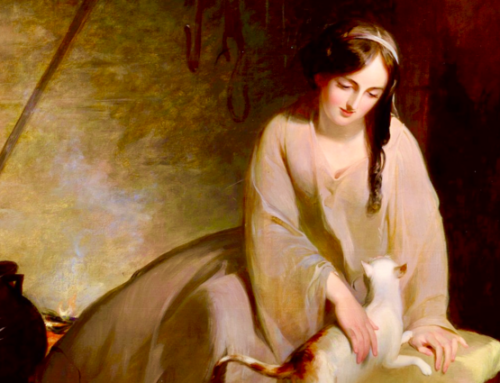
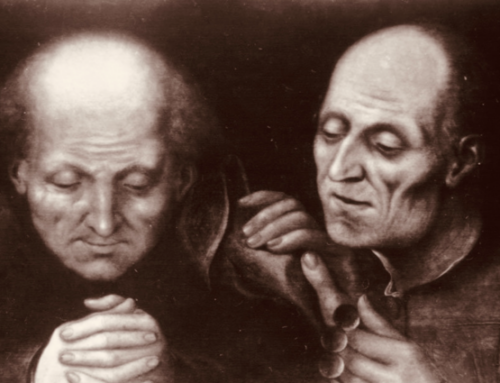
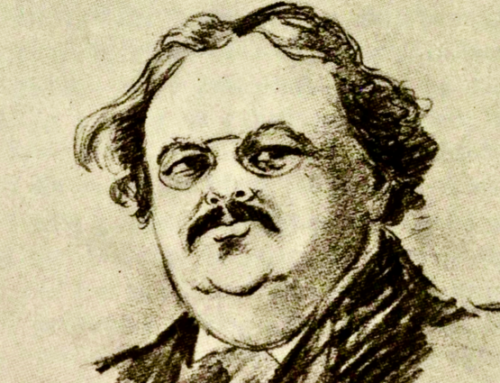
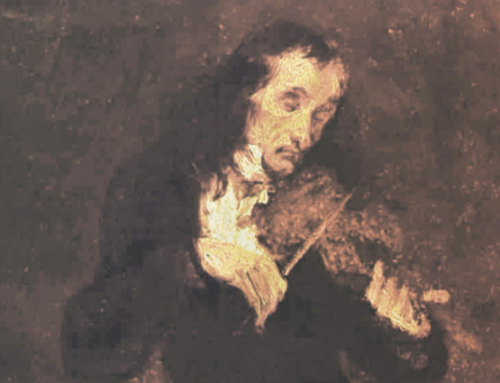
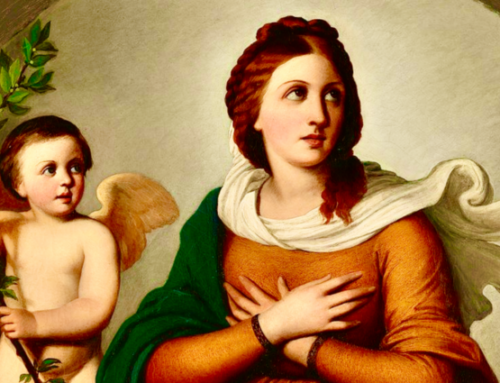
Leave A Comment